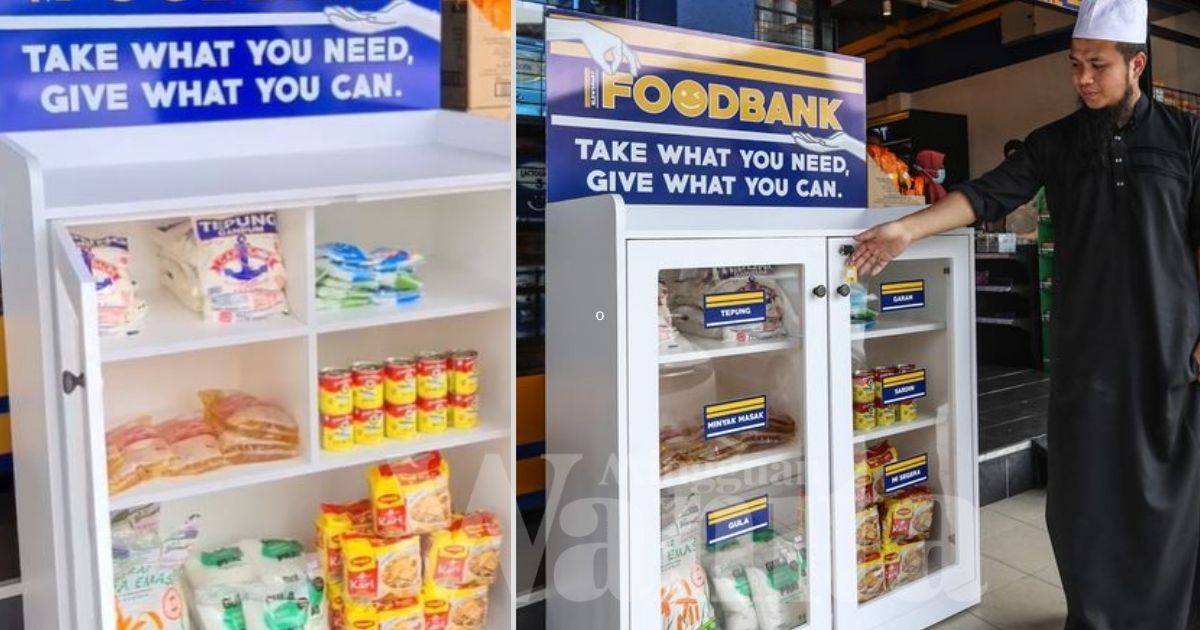Meals financial institution taxes, an issue that incessantly sparks debate, are an intriguing topic that calls for cautious exam. This research delves into the multifaceted nature of meals financial institution taxes, exploring their historic context, financial affect, social implications, and coverage issues.
The discourse objectives to make clear the complexities surrounding meals financial institution taxes, offering insights into their results on meals banks, donors, recipients, and society as a complete. By means of inspecting case research and world comparisons, we search to attract treasured courses and establish doable spaces for reform.
Definition and Clarification of Meals Financial institution Taxes

Meals financial institution taxes refer to express levies or fees imposed on people or entities concerned within the assortment, distribution, or intake of meals pieces thru meals banks.
Function and Targets
The principle goal of meals financial institution taxes is to generate income to strengthen the operations and products and services equipped via meals banks. Those taxes purpose to make sure the supply of good enough sources to procure, retailer, and distribute meals to people and households in want.
Historic Context and Evolution
Meals financial institution taxes have advanced over the years, with their implementation various throughout other jurisdictions. Traditionally, those taxes were offered as a method to complement govt investment for meals help methods and to inspire non-public sector participation in addressing meals lack of confidence.
Varieties and Constructions of Meals Financial institution Taxes
Meals financial institution taxes range of their design and implementation, with other jurisdictions adopting distinct approaches to deal with the particular wishes and instances in their communities.
The mechanisms and constructions of meals financial institution taxes can range relying on the kind of tax applied. Some not unusual sorts of meals financial institution taxes come with:
Gross sales Tax
- Meals financial institution gross sales tax: A tax levied at the sale of meals pieces, with a portion of the income allotted to meals banks.
- Meals donation gross sales tax credit score: A tax credit score equipped to companies that donate meals to meals banks, lowering their general tax legal responsibility.
Assets Tax
- Meals financial institution assets tax exemption: A assets tax exemption granted to meals banks, lowering their working prices.
- Meals financial institution assets tax surcharge: A surcharge added to assets tax expenses, with the income devoted to supporting meals banks.
Source of revenue Tax
- Meals financial institution revenue tax credit score: A tax credit score equipped to people who donate to meals banks, lowering their general tax legal responsibility.
- Meals financial institution revenue tax surcharge: A surcharge added to revenue tax expenses, with the income allotted to meals banks.
Those are only some examples of the differing kinds and constructions of meals financial institution taxes applied in quite a lot of jurisdictions. The particular design and implementation of meals financial institution taxes depends on the original instances and priorities of each and every group.
Financial Affect of Meals Financial institution Taxes

Meals financial institution taxes have vital financial implications for meals banks, donors, recipients, and the whole economic system. Those taxes can have an effect on the supply of meals for the ones in want, the monetary steadiness of meals banks, and the incentives for meals donations.
Affect on Meals Banks and Their Operations
Meals financial institution taxes can build up the operational prices of meals banks, diverting price range that might differently be used to buy or distribute meals. This may end up in lowered meals availability for the ones in want and a pressure at the sources of meals banks.
Affect on Meals Donors and Recipients
Meals financial institution taxes can disincentivize meals donations via expanding the price of donating meals. This may cut back the volume of meals to be had to meals banks and doubtlessly build up meals waste. Moreover, meals financial institution taxes can build up the price of meals for recipients, making it tougher for them to get admission to nutritious meals.
General Financial Implications
Meals financial institution taxes may have broader financial implications via lowering the potency of meals distribution methods and extending meals waste. This may end up in upper meals costs and lowered get admission to to meals for the ones in want.
Social and Moral Concerns of Meals Financial institution Taxes
Meals financial institution taxes elevate essential social and moral issues, in particular referring to their affect on susceptible populations and the taxation of charitable organizations.
Social Implications
Meals financial institution taxes can disproportionately burden low-income families and people who depend on meals banks for sustenance. Those taxes might build up the price of meals for individuals who can least manage to pay for it, exacerbating meals lack of confidence and starvation. Additionally, meals financial institution taxes might discourage donations to meals banks, lowering the supply of meals help for the ones in want.
Moral Considerations
Taxing charitable organizations raises moral questions concerning the position of presidency in supporting non-profit organizations. Some argue that meals banks supply an very important carrier to society and will have to be exempt from taxation. Others contend that each one organizations, irrespective of their charitable standing, will have to give a contribution to the general public income.
Accidental Penalties
Meals financial institution taxes will have unintentional penalties, similar to:
- Higher administrative prices for meals banks, diverting sources clear of meals help methods.
- Lowered incentives for companies to donate meals to meals banks, because the tax deduction could be lowered.
- Encouraging meals banks to interact in lobbying and political actions to keep away from taxation, doubtlessly compromising their independence.
Coverage Choices and Reform Proposals: Meals Financial institution Taxes

Addressing meals financial institution taxes calls for a complete manner that considers quite a lot of coverage choices and reform proposals. Those choices purpose to mitigate the destructive affects of taxes on meals banks and optimize their effectiveness in assuaging meals lack of confidence.
One coverage choice is to offer tax exemptions or deductions for meals donations to meals banks. This would scale back the monetary burden on donors and inspire higher contributions, thereby improving the provision of meals to be had to these in want.
Tax Credit for Meals Financial institution Volunteers
Another choice is to provide tax credit to people who volunteer their time at meals banks. This could acknowledge the dear contribution of volunteers and incentivize their persisted involvement, making sure a competent personnel for meals banks.
Case Research and World Comparisons
To grasp the sensible implications and courses realized from meals financial institution taxes, it is very important to inspect case research and habits world comparisons.
Case research supply insights into the implementation, demanding situations, and results of meals financial institution taxes in explicit jurisdictions. World comparisons permit for a broader figuring out of various coverage approaches, tax constructions, and their affect on meals banks and the communities they serve.
United States, Meals financial institution taxes
In the US, a number of towns have applied meals financial institution taxes, together with Chicago, San Francisco, and Philadelphia. Those taxes generally levy a small share on eating place foods or grocery purchases, with the income devoted to supporting native meals banks.
The Chicago Meals Financial institution Tax, for instance, has generated vital investment for meals banks within the town, serving to to extend their products and services and achieve extra other folks in want. Then again, the tax has additionally confronted complaint for doubtlessly burdening low-income families and small companies.
Canada
Canada has applied a countrywide Items and Services and products Tax (GST) that features a zero-rating for meals bought at grocery retail outlets. This coverage successfully exempts meals from taxation, which has been praised for lowering the price of meals for low-income families.
Then again, the GST exemption has additionally been criticized for now not offering direct strengthen to meals banks. Some advocates argue {that a} devoted meals financial institution tax could be a more practical technique to deal with meals lack of confidence.
Information Research and Analysis Findings
Information research and analysis findings supply treasured insights into the affect and effectiveness of meals financial institution taxes. By means of amassing and inspecting knowledge, policymakers and researchers can establish traits and patterns in meals financial institution tax insurance policies, assess their affect on meals safety and govt income, and overview their general effectiveness in addressing meals lack of confidence.
Analysis research have tested the affect of meals financial institution taxes on meals financial institution utilization, meals lack of confidence, and govt income. One learn about discovered {that a} 1% build up in meals financial institution tax income was once related to a zero.5% lower in meals financial institution utilization, suggesting that meals financial institution taxes might discourage some people from the usage of meals banks.
Affect on Meals Lack of confidence
Some other learn about discovered that meals financial institution taxes will have a destructive affect on meals lack of confidence, in particular amongst low-income families. The learn about discovered that families with earning underneath the poverty line had been much more likely to revel in meals lack of confidence in the event that they lived in spaces with meals financial institution taxes.
Income Era
In relation to income technology, meals financial institution taxes were discovered to be a slightly environment friendly technique to elevate income. One learn about discovered that meals financial institution taxes generated a median of $100 million according to 12 months in income, with nearly all of the income coming from high-income families.
Traits and Patterns
Analysis has additionally known traits and patterns in meals financial institution tax insurance policies. One pattern is the expanding use of meals financial institution taxes via state and native governments. In recent times, a number of states and localities have applied meals financial institution taxes to deal with price range shortfalls or to fund explicit methods.
Some other pattern is the rising use of focused meals financial institution taxes. Centered meals financial institution taxes are designed to attenuate the affect on low-income families via exempting sure sorts of meals or via offering tax credit to low-income people.
Conclusion and Abstract
Meals financial institution taxes are a fancy and multifaceted factor with vital implications for each meals banks and the communities they serve. Figuring out the kinds, financial affect, social and moral issues, coverage choices, and world comparisons is an important for knowledgeable decision-making.
Meals financial institution taxes have the prospective to generate income for very important products and services whilst additionally incentivizing meals donations. Then again, they may be able to additionally create administrative burdens for meals banks and might discourage donations from people and companies. The social and moral implications of meals financial institution taxes will have to be sparsely regarded as, making sure that they don’t disproportionately affect susceptible populations.
Spaces for Additional Analysis and Exploration
Additional analysis is had to discover the long-term results of meals financial institution taxes on meals financial institution operations and the communities they serve. Moreover, comparative research of meals financial institution taxes in several jurisdictions may give treasured insights into best possible practices and coverage design.
Not unusual Queries
What are meals financial institution taxes?
Meals financial institution taxes are levies imposed on meals banks or charitable organizations that distribute meals to people in want.
What’s the goal of meals financial institution taxes?
Meals financial institution taxes purpose to generate income for governments, incessantly with the goal of supporting social welfare methods.
What are the arguments towards meals financial institution taxes?
Critics argue that meals financial institution taxes disproportionately burden charitable organizations and obstruct their talent to offer very important products and services to susceptible populations.

